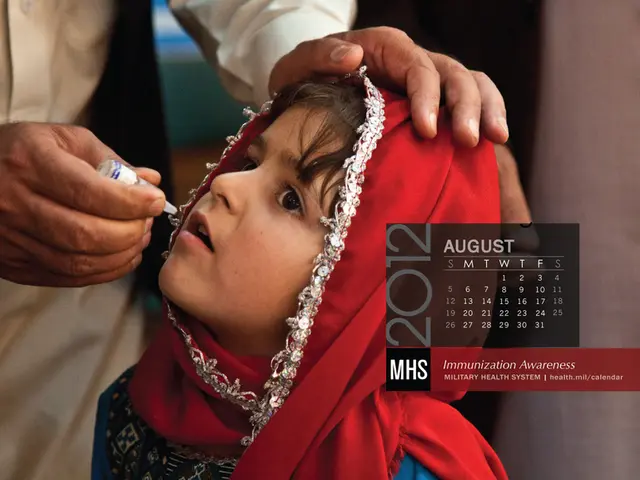Pathways of Extremist Ideologies Reaching the Oval Office
WHITE HOUSE - In a controversial exchange during a meeting with South African President Cyril Ramaphosa this week, President Donald Trump presented a disputed video featuring numerous white crosses and claimed they represented the burial sites of murdered white farmers in South Africa. However, fact-checkers found that the footage actually came from a demonstration following the deaths of two people on a farm, with both killers having been convicted and sentenced. This is not the first time President Trump has promoted this unsubstantiated claim of a "white genocide" occurring in South Africa.
The false narrative originated from fringe right-wing Afrikaner groups and gained traction on Fox News, including an appearance on Tucker Carlson's show in 2018. After the interview, Trump instructed his Secretary of State to look into supposed anti-white discrimination and murder in South Africa. However, comprehensive analysis reveals no evidence of a racially motivated genocide targeting white farmers.
During the meeting, the South African president denied Trump's claims, stating that no one can take land in South Africa. Trump, insisting on the issue, asserted that murdered white farmers had their land stolen by the government without consequence. This heated exchange sheds light on the persistent narrative of "white genocide," which mirrors the broader white nationalist rhetoric of "white displacement" or the "Great Replacement" conspiracy theory.
In a separate interview, NPR journalist Redi Tlhabi explained that South Africa has an unacceptably high crime rate, affecting all racial groups. Of the country's Black men, the majority of murder victims. Similarly, journalist Kate Bartlett reported for NPR that white South Africans, despite making up just over 7% of the population, still own the majority of commercial farm land. Despite Trump's assertions, no land has been seized under the controversial January law allowing expropriation in some circumstances.
The Trump administration, however, recently granted refugee status to 59 Afrikaners, with more expected in the future. The repetition of discredited theories from fringe sources into the political mainstream is a recurring phenomenon under the Trump administration, as NPR's Lisa Hagen explained. Such instances disrupt societal trust and have real-world consequences affecting government policy and decision-making.
- In the realm of general-news, controversies surrounding President Trump's claims about white farmers in South Africa continue, as fact-checkers discredit disputed videos and assert the absence of a racially motivated genocide.
- The persistent narrative of a "white genocide" is not only found in the White House, but also permeates social-media, mirroring broader white nationalist rhetoric such as the "Great Replacement" conspiracy theory.
- The entertainment industry, in contrast, seldom engages with these divisive topics, focusing instead on pop-culture and light-hearted entertainment.
- On occasion, some investigative news outlets like NPR delve into the complexities of South Africa's crime-and-justice system, revealing that while the country has an unacceptably high crime rate affecting all racial groups, Black men are the majority of murder victims.
- Meanwhile, politics often finds itself embroiled in such debates, as President Trump continues to assert that murdered white farmers had their land stolen by the government without consequence, a claim that has been proven false.
- As the Trump administration grants refugee status to more Afrikaners, the line between mainstream news and fringe sources becomes increasingly blurred, leading to potential consequences in government policy and decision-making.







